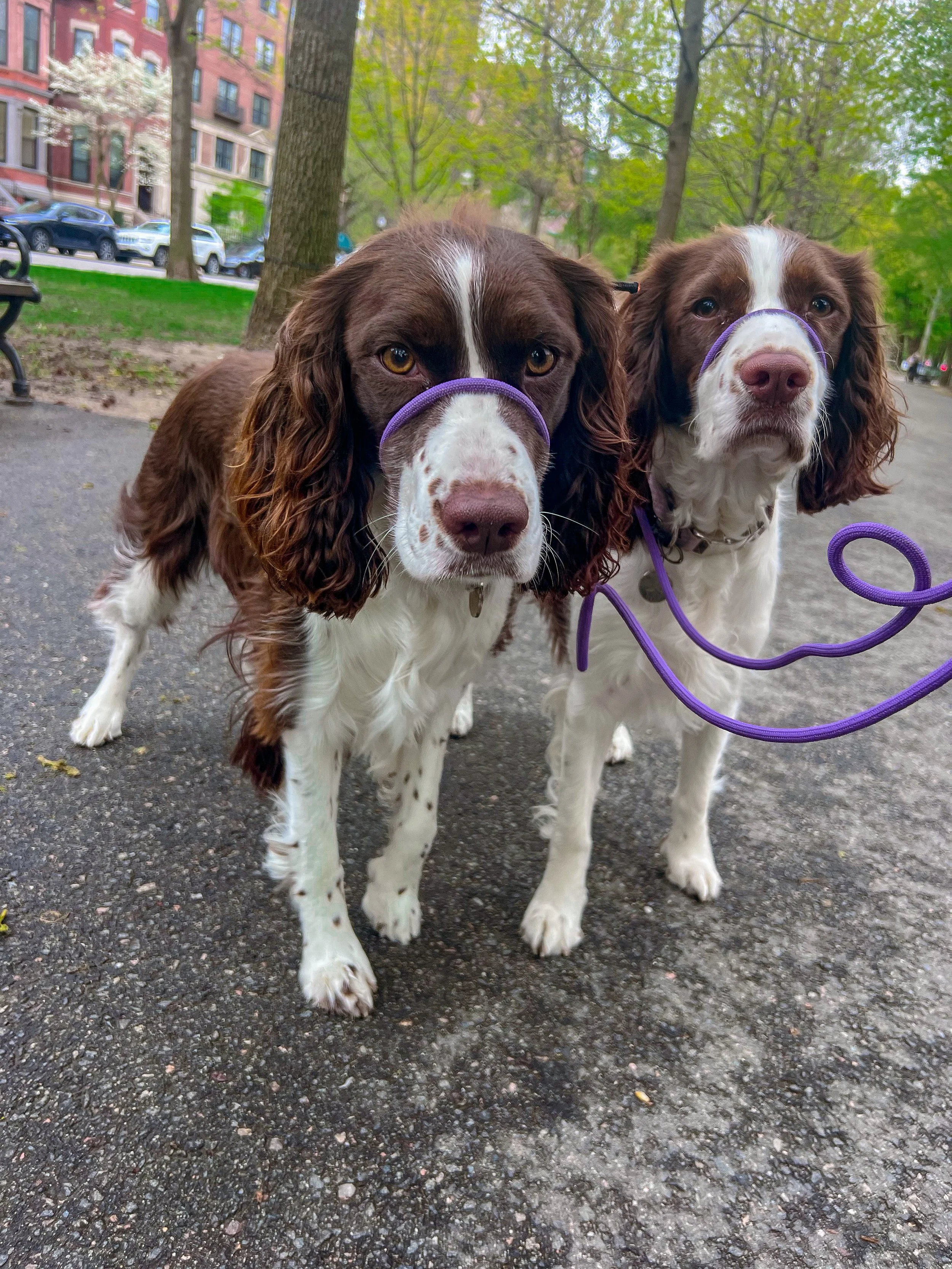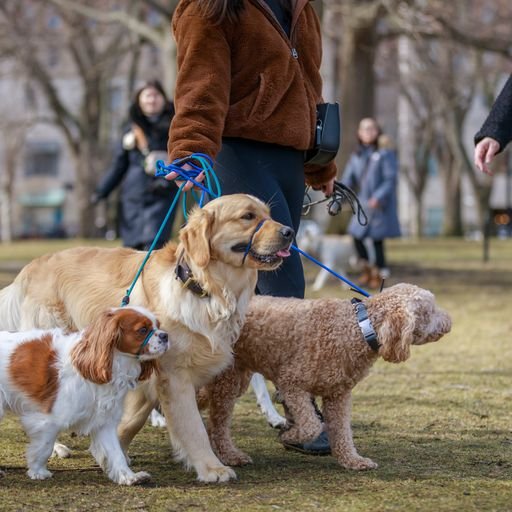Our services.
-
Private In-Home
For dogs 2 months and older! Private 1x1 sessions are 90 min in duration and I travel to the client's home. These are one-on-one sessions with Jacqulene, yourself, and your dog. You will get a complete understanding of the philosophy that fuels Jac’s approach to dog handling and working to transcend unwanted behaviors. You’ll receive an individualized plan for achieving your goals, continued support after each session, a complimentary 6’ LeaderSlip and the ability to practice applying techniques and tools in real life context.
$225 / 1.5hrs
-
Pack at the Farm
Tuesdays + Thursdays
An experience unlike any other - this is a curated group of dogs who come out to the farm and cover upwards of 10 miles a day over the course of our 8hrs on property. We work, play, and experience the nuances of our time together as a pack. This is a service that includes myself and the dogs — relying on my practice and knowledge of the Jentle Method lead work to help each being transcend beyond any pre-existing imbalances that arise while we are together.
Dogs will be admitted on a rolling basis to ensure the cohesion, connection, and balance necessary to maintain the harmonious atmosphere of our pack days. Once a new dog has been onboarded, a new dog slot will be opened up and folks on the waitlist will be notified.
City-based dogs will be picked up at a location in Charlestown, MA. Day’s end drop-off will be at this location as well. $85/dog/day
Please reach out via email jacqulene@jactrainsdogs.com with the subject line of ‘Pack Day’ to inquire / join waitlist.
We cannot wait to share the farm with your dogs so we may grow and enjoy together as a pack!
-

Work and Stay
Similar to a ‘board and train’ service, this immersive offering is designed for your dog to do an intensive multi-day stay with Jacqulene in her home. This is an opportunity for your dog to live their day-to-day life encapsulated with the structures, boundaries, guidance, and individualized attention that will help move the needle significantly on their journey to neutrality and enjoyment. Each dog is different with unique needs which is why their stay is individualized and is unlikely to overlap with the immersive experience of a secondary dog, as not to deter from your dog’s progress and needs. The dog will live at the farm, in home with Jacqulene and her family, including her four-legged companion, Rizzo. Unlike the average board and train experience, you dog will be in the spotlight for the entirety of their stay in an effort to nurture as much change in feeling and behavior as possible during their time with Jacqulene. Expectations and goals will be discussed with the owners before the service can be scheduled and not all inquiries will be fulfilled. Eligibility is ultimately up to Jacqulene’s personal discretion on a situational basis. If the service will not result in the change sought after by the human, Jacqulene will decline with ample explanation and discussion.
Pricing is tiered based on length-of-stay, please inquire for more details!
$190-$235 / night
*10 day minimum
-
Private Day Train
This is a 6hr service between Jacqulene and your dog over the course of a single day. The entirety of the time-shared between Jac and your canine companion will be tailored to working on your dog’s specific needs. Please reach out to Jacqulene directly to learn what will be offered through the private day train experience in reference to your dog, specifically.
To become eligible for this service, you must participate in at least one private in-home session or complete the puppy package with Jacqulene.
$350 / 6hrs
-

Group Working Session
This offering is available to existing clients only, meaning dogs who have worked with me during a private session at least once in the last 12 calendar months. This is in an effort for everyone involved to be safe and comfortable as lots of our canine companions are working with their handlers on a variety of behavioral challenges. It’s important that I have a sound perspective of the attendees ability to handle their dog and the dog’s behavioral tendencies.
Scheduled ad-hoc and posted on Instagram, held at a public location, space limited, eligible only to existing pack members and human companions.
$40-$80 / dog


